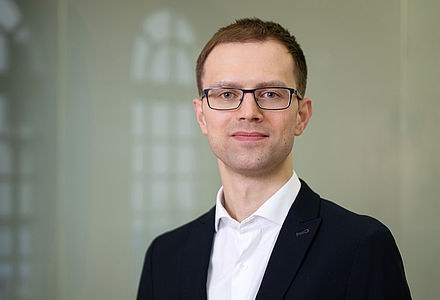Causes of populism: IWH begins international research project
Be it triumphant Brexit supporters, right-wing populist governments in eastern Europe or the AfD’s election successes in Germany: the resurgence in populism is affecting the heart of Europe’s democracies and putting the European Union under pressure. There are various explanations as to the causes of this phenomenon. In a new research project, the Halle Institute for Economic Research (IWH) will investigate to what extent economic factors influence support for populist policies. To this end, the IWH will be leading an international and interdisciplinary project team, starting this year. It will include economists and political science researchers from the Universities of Nottingham (England) and Glasgow (Scotland), as well as the Economics Institute of the Czech Academy of Sciences in Prague. The Volkswagen Foundation is funding this project to the tune of almost one million euro for four years. It is entitled: “The rise of Europe’s populist parties: the dark side of globalisation and technological change?”.
When subsidies are distributed, politicians are often concerned with appeasing voters in economically lagging regions. This is based on the assumption that economic problems are the main reason for the election of anti-democratic, populist parties and that state aid can influence this voting behaviour. Both these assumptions are questionable and not sufficiently scientifically proven.
Globalisation may have increased prosperity in general, but has also led to unemployment, wage inequality, outward migration and, thus, ageing populations in many European regions. The IWH and its partners will now examine whether these economic burdens have helped to cause this upturn in populism. An extensive causal analysis will show to what extent economic hardship leads to votes for populist parties. To obtain conclusive results, the researchers aim to analyse the correlations for several European countries. This will include central and eastern European states, in particular.
The research project aims to enrich the debate, in which populism is primarily interpreted as a cultural backlash to liberalisation, open borders and migration. In addition, the results could yield important political recommendations, says project coordinator Steffen Müller, Head of the Structural Change and Productivity Department at the IWH. “When subsidies are distributed, politicians are often concerned with appeasing voters in economically lagging regions. This is based on the assumption that economic problems are the main reason for the election of anti-democratic, populist parties and that state aid can influence this voting behaviour. Both these assumptions are questionable and not sufficiently scientifically proven.” Müller and his team therefore aim to investigate, for example, whether EU funding in structurally weak regions reduces the vote share for Eurosceptic parties.
Whom to contact
For Researchers

Department Head
If you have any further questions please contact me.
+49 345 7753-708 Request per E-MailFor Journalists

Internal and External Communications
If you have any further questions please contact me.
+49 345 7753-832 Request per E-MailIWH list of experts
The IWH list of experts provides an overview of IWH research topics and the researchers and scientists in these areas. The relevant experts for the topics listed there can be reached for questions as usual through the IWH Press Office.



